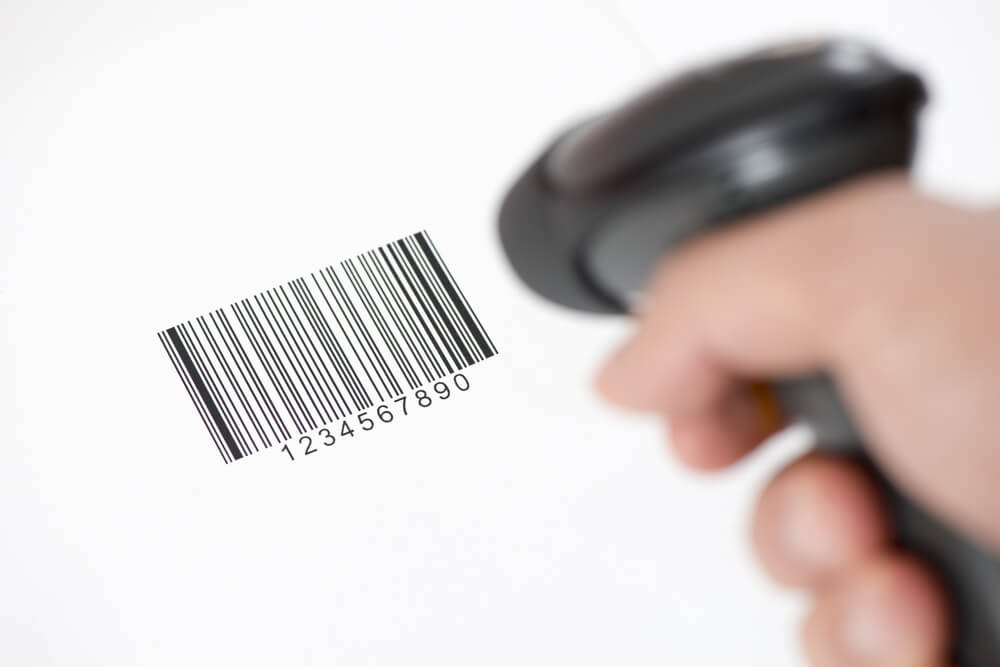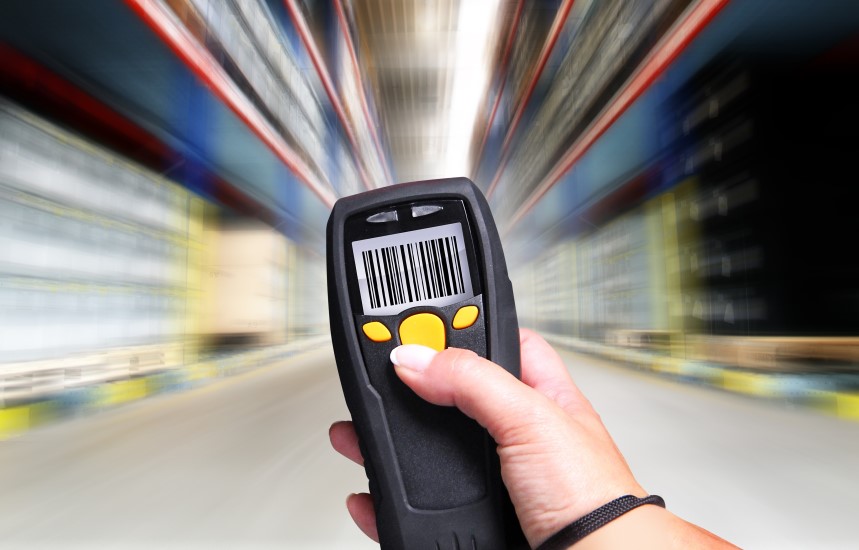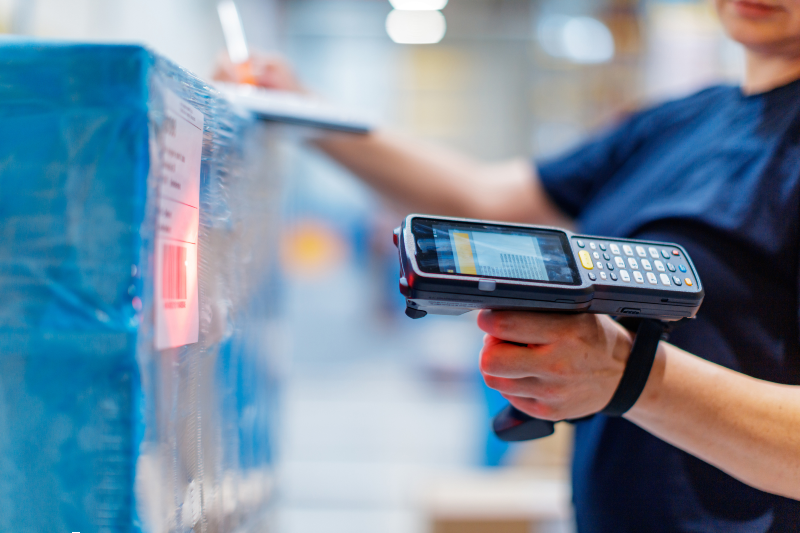Versatile Barcodes Scanners for Various Applications
Versatile Barcodes Scanners for Various Applications
Blog Article
Selecting the Right Barcode Scanner for Your Company Requirements
Picking the proper barcode scanner for your business calls for a nuanced understanding of your certain functional demands and ecological conditions. Elements such as scanner type, speed, and compatibility with existing systems play an essential duty in identifying the right option.
Comprehending Barcode Scanner Types
When it involves choosing a barcode scanner, recognizing the various kinds available is crucial for meeting certain service requirements. Barcode scanners can be classified into several kinds, each created for various applications and atmospheres.
Handheld scanners are one of the most common, offering mobility and ease of usage, making them appropriate for retail and stock monitoring. They commonly connect by means of USB or Bluetooth, supplying flexibility in operation. Fixed-mount scanners, on the various other hand, are developed for high-volume scanning applications, usually discovered in assembly lines or check out counters. These scanners are mounted in a stationary position, enabling rapid scanning of multiple items in succession.
Another kind is the mobile computer system, which integrates scanning abilities with computing power. These tools are ideal for field operations or storage facility monitoring, enabling data collection and real-time stock tracking. Additionally, there are commercial scanners that are developed to hold up against extreme settings, such as extreme temperatures or direct exposure to dirt and wetness.

Secret Functions to Think About
What vital functions should services prioritize when choosing a barcode scanner? Most importantly, scanning speed is crucial, as faster scanners improve operational performance, especially in high-volume settings. The scanner's capability to review different barcode layouts is also vital; guarantee it supports preferred types like QR codes, UPC, and Code 128 to suit varied inventory products.
Sturdiness is one more essential feature, particularly for companies in rugged setups. Seek designs that are developed to endure drops, dust, and moisture. Additionally, consider the connection choices offered; whether you prefer USB, Bluetooth, or Wi-Fi, the ideal connectivity can enhance assimilation with existing systems.

Evaluating Your Organization Environment
To effectively select a barcode scanner, organizations should analyze their particular functional environment. This analysis includes reviewing the physical layout of the office, the nature of the items being scanned, and the common problems under which scanning happens. As an example, a retail environment may call for portable scanners that can rapidly refine purchases at the check out, while a warehouse setup could take advantage of ruggedized scanners created to sustain harsher problems.
Additionally, think about the quantity of scanning called for. High-throughput environments may require sophisticated scanning modern technologies, such as fixed-position scanners or mobile phones that can operate efficiently in busy situations. The integration capabilities with existing stock management systems likewise play a vital duty; make certain the selected scanner can effortlessly attach with software platforms in operation.
Additionally, evaluate the potential for development and scalability. A scanner that satisfies current needs may not be enough as organization expands. By extensively assessing these variables, services can choose a barcode scanner that not just fulfills prompt needs yet also sustains lasting functional effectiveness and flexibility. This calculated method ultimately contributes to smoother procedures and improved productivity.
Budgeting for Your Scanner
Having actually evaluated the functional environment and determined the details requirements helpful site for a barcode scanner, the next action involves cautious budgeting to ensure a clever monetary investment. Developing a budget plan starts with figuring out the overall expenses linked with the scanner, consisting of preliminary acquisition cost, functional expenses, and prospective upkeep charges.
When picking a barcode scanner, think about the series of offered alternatives, from handheld gadgets to fixed-position scanners, as rates can vary substantially. It is necessary to balance cost with capability; opting for a more cost effective version may cause boosted operational ineffectiveness if it does not satisfy your business needs.
Along with the equipment, factor in expenses connected to software program, training, and possible upgrades. While it may be alluring to lessen upfront expenditure, investing in a quality scanner that aligns with your operational demands can produce long-term cost savings with boosted performance and reduced downtime.
Lastly, consider the total cost of possession, which encompasses over here the scanner's life expectancy and prospective resale worth. By thoroughly intending your spending plan, you can make certain that your investment in a barcode scanner will enhance your operational productivity and financial efficiency.
Assimilation With Existing Equipment
Incorporating a barcode scanner with your existing systems is important for optimizing its efficiency and guaranteeing seamless operations. barcodes scanners. A well-integrated scanner boosts operations effectiveness, reduces errors, and increases information processing. When selecting a barcode scanner, consider compatibility with your existing software program and hardware facilities, including your stock administration systems, point-of-sale (POS) systems, and enterprise source preparation (ERP) services
Evaluate whether the scanner makes use of common methods such as USB, Bluetooth, or Wi-Fi, which can promote simple integration. In addition, examine whether the scanner's software application offers APIs or SDKs that permit personalization and combination with proprietary systems. This is look at this site specifically essential for businesses with one-of-a-kind operational needs.
Furthermore, consider the scalability of the scanning service. As your organization grows, your systems must have the ability to accommodate extra scanners and take care of raised data volumes without substantial reconfiguration. Ultimately, purchasing a barcode scanner that effortlessly incorporates with your existing systems will yield long-lasting advantages, improving precision, performance, and overall efficiency within your procedures. Make the effort to extensively assess your combination requires prior to buying choice.

Verdict
To conclude, picking an ideal barcode scanner requires a detailed examination of different elements, including scanner kinds, crucial attributes, and the certain business environment. Correct budgeting for both purchase and operational costs is essential, along with making certain compatibility with existing systems. By thoroughly taking into consideration these aspects, companies can enhance performance and efficiency, ultimately bring about enhanced operational end results. The right barcode scanner serves as an essential tool in streamlining procedures and helping with reliable stock monitoring.
Report this page